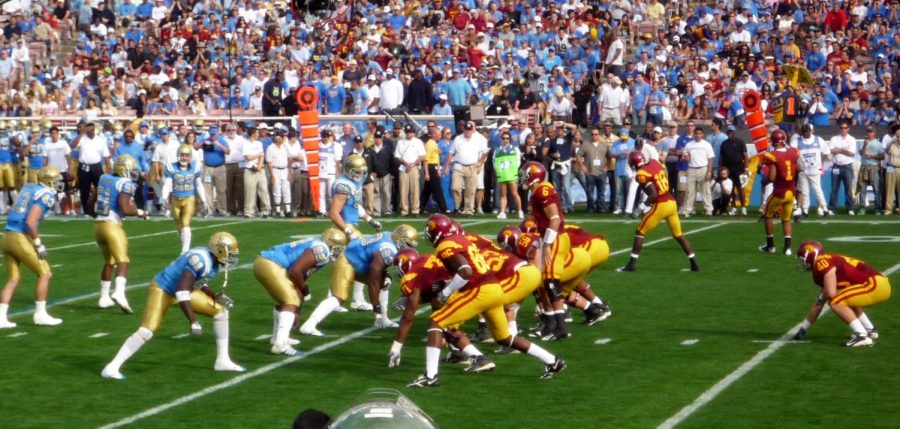Paying College Athletes
October 16, 2019
Last Monday, California Governor, Gavin Newsom, signed into law a bill that would allow college athletes to get paid for use of their names, images, and likenesses.
Previously, California Universities had to follow strict NCAA rules that prohibited student athletes from receiving payment from brand deals and using their names and images on products. This bill would make it illegal in the state of California for universities to follow those NCAA rules and would allow students to be paid without risk of losing scholarships or getting banned from the NCAA league.
The bill was signed publicly on an online-only episode of The Show. Governor Gavin Newsom appeared alongside Lebron James discussing the bill and its implications on the future of college sports. In an article from the Los Angeles Times, James says, “This is a game-changer for student-athletes and for equity in sports. Athletes at every level deserve to be empowered and to be fairly compensated for their work, especially in a system where so many are profiting off of their talents.” James is referring to this controversial debate in the college sports conversation. Many former and current student-athletes complain that it is unfair that colleges and the NCAA are receiving millions of dollars in revenue from sport brand deals and jersey sales using their names, while the athletes receive no compensation. College athletes have previously sued the NCAA and won, but no changes have been made by the NCAA.
The California Legislature hopes that with this new law, other states will follow suit and force the NCAA to finally revise their laws. States like Florida, Washington, Maryland New York, South Carolina, and Minnesota have already started introducing similar bills. The bill in California will take action in 2023, but some of the bills introduced in other states, such as Florida, can start as early as 2020, which is concerning for the NCAA. The NCAA said, “[We agree] changes are needed to continue to support student-athletes, but improvement needs to happen on a national level through the NCAA’s rule-making process.” The NCAA is concerned that these new rules will give universities in these states unfair advantages when recruiting new students. In an email to Governor Newsom, they warned that passing this bill put California universities at risk of losing NCAA membership and participation. While this threat is serious, many people believe that the NCAA will not follow through. Most of their audience viewership comes from these California universities and banning them would mean millions of dollars in loss for the NCAA. Not to mention, if other states approve similar bills, the NCAA would have to ban them too, causing the organization to lose even more viewership and money.
The NCAA made a committee earlier this year to revise current rules and come up with solutions to the problems with student-athlete endorsement. While many see this as a step in the right directions, others are afraid that it will just lead to more chaos. If the rules the NCAA comes up with at the end of this long rode do not please the players and government, they’ll end up exactly where they are now and would have accomplished nothing.
This new law in California, and others like it, could give many new opportunities to men and women in college sports. Currently, about 2% of all male college athletes get drafted into a professional team, and an even smaller percentage of women get drafted. This new law could give athletes in college the ability to profit off of what they love to do. Getting paid for the use of your name is a privilege we all have. Why should college athletes be any different? Donald De La Haye, ex-UCF Star Football Kicker, definitely would agree that it is time for a change. When monetizing a video on Youtube can get you banned from the sport you love to play, it is time for a change. It’s a matter of respect for the people that play the games. It’s not just a college football thing or a basketball thing, or just any other sports thing, it’s the fact that any of us would have the opportunity to earn a profit off of what we love to do in college, and student-athletes should not be treated any differently.


